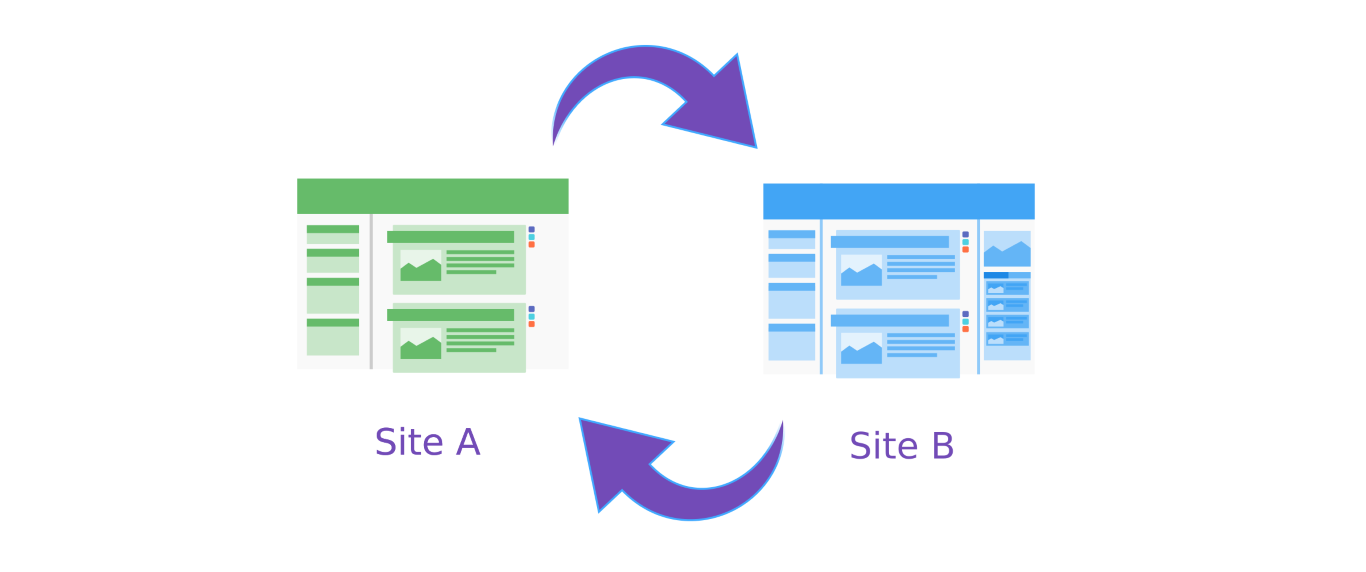What is a Link Exchange?
A link exchange is a practice wherein two websites agree to link to one another to increase their backlink count and improve their search engine rankings. It is also called reciprocal linking.
For example, let’s assume there are two sites named Site A and Site B. To perform a link exchange, Site A will link to Site B. In exchange, Site B will link back to Site A.

Link exchange is a white hat SEO link-building technique. However, it is essential to note that aggressive or irrelevant link exchanges done to manipulate search rankings are considered a black hat SEO technique. These sorts of link exchanges violate Google Search Essentials spam policies and are categorized as link spam and link schemes.
Like other link schemes, aggressive link exchanges may result in Google issuing you a penalty. Depending on the severity of the spammy link exchange, this could lead to Google demoting the webpage’s rankings or removing your site completely from search results pages.
Link exchanges are a common occurrence in SEO, and sites, both small and large, engage in them. It is even natural for sites to link back to one another, even if the bloggers do not agree to such. However, link exchanges are somewhat controversial, and some bloggers prefer to avoid them altogether. This is likely due to fears about it being considered a black hat SEO technique.
What Google Says About Link Exchanges
Google does not appear to have issues with link exchanges that are kept natural and coordinated between helpful content. However, Google explicitly warns bloggers and creators against involvement in excessive and spammy link exchanges.
Google considers excessive link exchanges a type of link spam. This includes aggressive link exchanges and link exchanges executed using content specifically created for such purposes. These sorts of content are typically low-quality and unhelpful, as they are written for search engines rather than humans.
Google also considers link exchanges done in exchange for payment as a form of link scheme. These sorts of links are called paid links and violate Google spam policies. Automated link exchanges and link exchanges done with unhelpful, unrelated, or spammy sites also violate Google’s spam policies.
Why Bloggers Participate in Link Exchanges
Bloggers engage in link exchanges to get more quality and relevant links pointing to their content. Backlinks are a ranking factor, and the more quality backlinks a site receives, the more authoritative Google considers it. Authoritative sites have higher chances of ranking on search results pages.